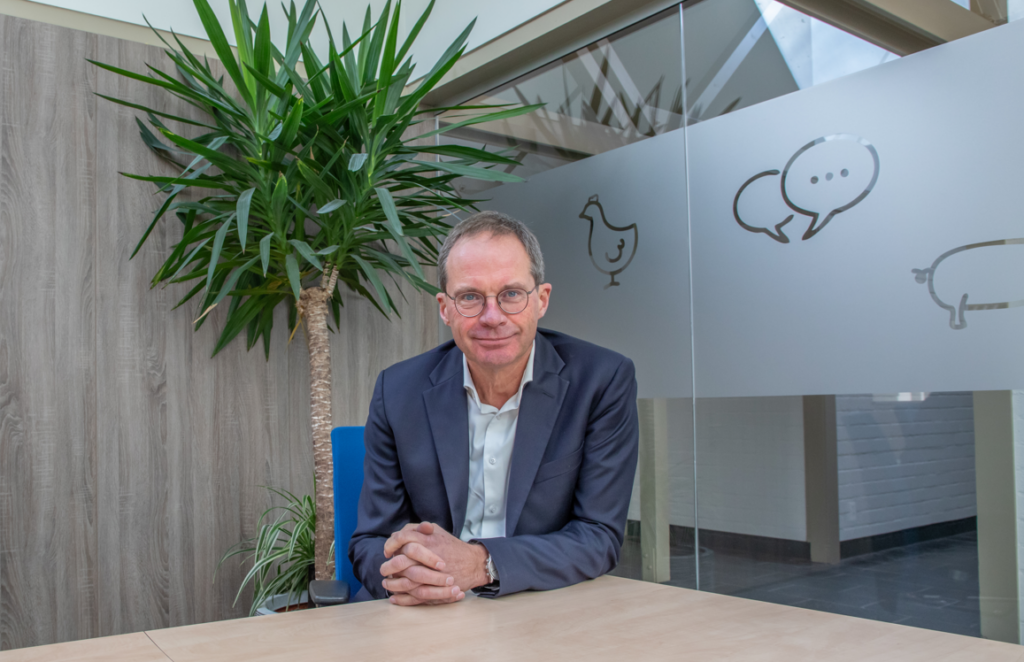Jan Kamphof, our new CEO
Jan Kamphof just completed his first hundred days as ceo of Schothorst Feed Research (SFR). “I felt very welcome here from day one”, he says: “The 85 people at SFR work closely together to use their knowledge, expertise and experience for the benefit of our clients.” The work atmosphere and good-fellowship at SFR gives the organisation a kind of family feeling.
Challenges
Many challenges lie ahead in the world of livestock and animal nutrition: The animal production sector is decreasing in North-western Europe and this decline will have consequences, not only for the farmers, but definitely also for the feed industry and for us, as knowledge transfer organization, Kamphof explains. “Take-overs and merges in the feed and feed additives industry result in fewer participants of our Advanced Feed Package, and this affects the income we generate in The Netherlands. In the near future, we will offer more diversity in our service packages, to better fulfil the customer needs.”
Kamphof sees a growth in the number of service packages and research assignments from Germany, Scandinavia and Southern Europe. This will generate more income for SFR in other countries.
Facing the challenges
In the past, animal nutrition was mainly focused on efficiency, but nowadays, society expects more from us: Consumers demand more attention for animal welfare and environmental issues. Having said that, Kamphof emphasizes that economic sustainability is still a prerequisite for the livestock sector.

“Fortunately, our team is very well experienced to tackle the challenges ahead. Internationally, we have a great reputation for high quality, independent and scientifically based research, and this will remain our key feature in the future. At SFR, we will focus on innovations for the livestock and nutrition sector.” As an example, Kamphof mentions precision nutrition, sensor technology, and ‘big data’ to enable farmers and nutritionists to make continuous progress. “That is why we are going to invest more in IT, and optimize the distribution of tasks in our IT team.”
Collaboration
Collaboration, within the organisation as well as with external partners, is a key feature within SFR. “We work together with other research institutes, e.g., Wageningen University and Utrecht University in public-private collaborative research programmes. We team up with, e.g., Zetadec and Feed Design Lab to design trainings and courses that offer the best value for money for the participants”, Kamphof says. “We also work together with Aeres University of Applied Sciences, because of their expertise and research facilities in arable agriculture; animal production and crop production will need each other in more circular feed and food production systems.” Finally we are also active in some EU funded projects to bring our experience in applied animal nutrition.
Next spring, SFR will present a three year strategic plan to reformulate the core values of the organisation and to focus on long term partnerships. “Our main core values – independency, innovation, expertise and reliability – will continue to be in the lead”, says Kamphof: “These values made us strong over the past ninety years. We will remain a relevant, application-focused knowledge partner to make real impact on nutritional and societal themes; in the end, the livestock farmers, integrated food production companies and feed additive companies are our ultimate target group.”